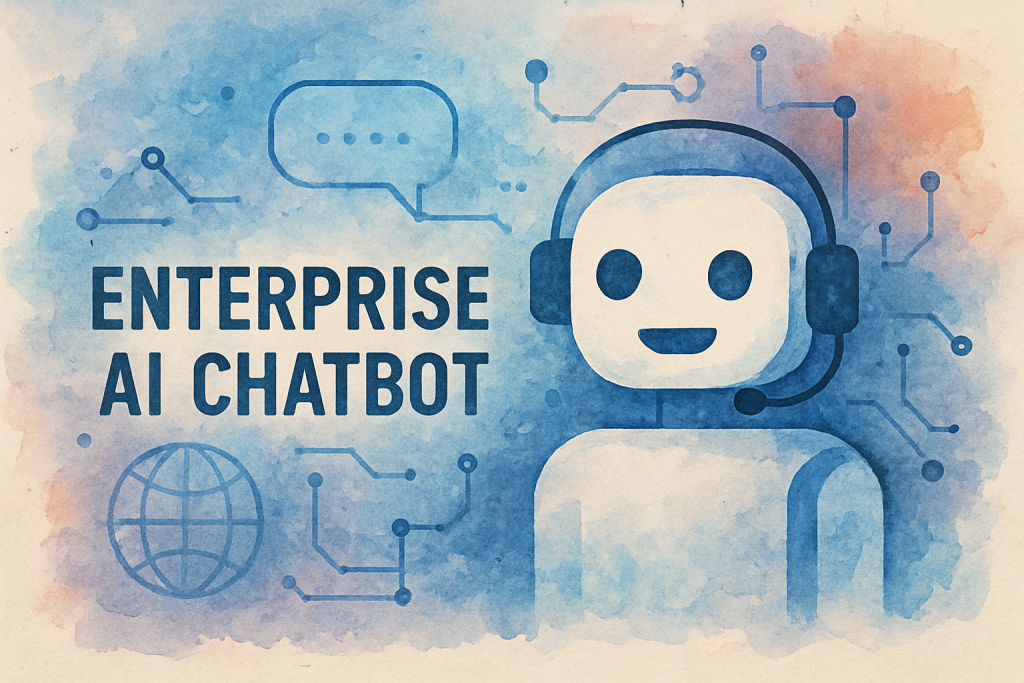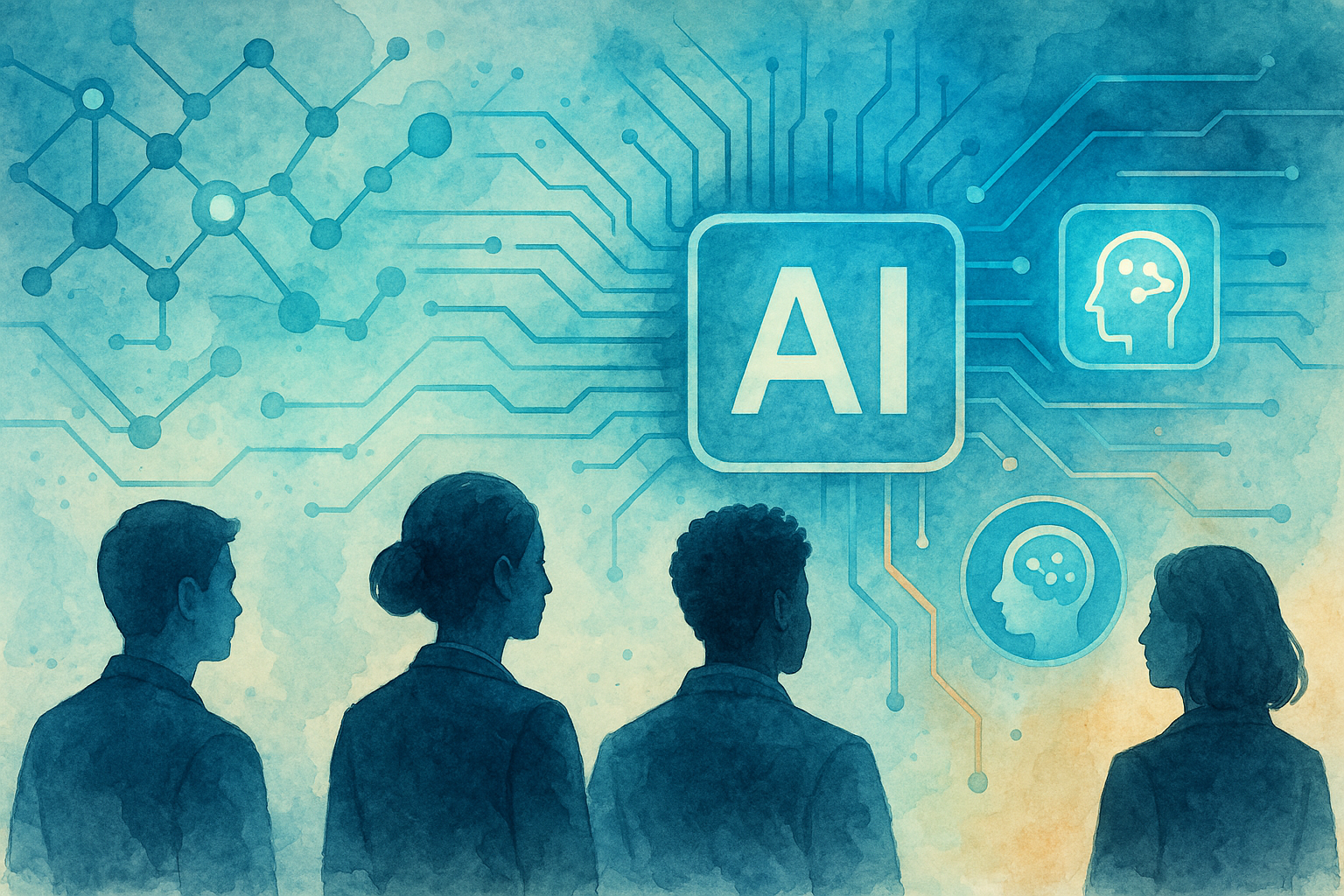Boost Your Business with an Enterprise AI Chatbot: The 1 Ultimate Guide for Marketing Managers
In today’s fast-paced digital landscape, businesses are constantly seeking innovative ways to enhance customer engagement and streamline operations. Enter the enterprise AI chatbot – a game-changing technology that’s revolutionising the way companies interact with their customers and manage internal processes. As a marketing manager, you’re likely aware of the buzz surrounding AI-powered chatbots, but you might be wondering how to harness their full potential for your organisation.
This comprehensive guide will walk you through everything you need to know about enterprise AI chatbots, from their definition and benefits to implementation strategies and overcoming common challenges. By the end of this article, you’ll be equipped with the knowledge and insights to make informed decisions about integrating AI chatbots into your business operations.
1. Understanding Enterprise AI Chatbots: A Game-Changer for Business
Before we dive into the nitty-gritty of implementing an enterprise AI chatbot, let’s first understand what they are and why they’re causing such a stir in the business world.
1.1 Defining Enterprise AI Chatbots
An enterprise AI chatbot is a sophisticated software application that uses artificial intelligence and natural language processing to engage in human-like conversations with users. Unlike simple rule-based chatbots, enterprise AI chatbots can understand context, learn from interactions, and provide personalised responses to complex queries.
1.2 The Rise of AI-Powered Customer Service
According to Servion Global Solutions, by 2025, AI chatbots are expected to handle 95% of customer interactions. This staggering statistic underscores the growing importance of AI-powered customer service solutions in the modern business landscape.
1.3 Key Features of Enterprise AI Chatbots
- Natural Language Processing (NLP) capabilities
- Machine Learning algorithms for continuous improvement
- Multi-channel integration (website, mobile apps, social media)
- Personalisation based on user data and behaviour
- Analytics and reporting functionalities
2. The Benefits of Implementing an Enterprise AI Chatbot
Now that we’ve established what enterprise AI chatbots are, let’s explore the myriad benefits they can bring to your organisation.
2.1 Enhanced Customer Experience
Enterprise AI chatbots provide instant, 24/7 support to customers, ensuring that their queries are addressed promptly and efficiently. This level of responsiveness can significantly improve customer satisfaction and loyalty.
2.2 Increased Operational Efficiency
By automating routine tasks and inquiries, AI chatbots free up your human agents to focus on more complex issues that require a personal touch. This leads to improved productivity and resource allocation.
2.3 Cost Savings
Implementing an enterprise AI chatbot can lead to substantial cost savings in customer service operations. According to Juniper Research, chatbots are expected to save businesses $8 billion annually by 2022.
2.4 Data-Driven Insights
AI chatbots collect and analyse vast amounts of customer interaction data, providing valuable insights into customer preferences, pain points, and behaviour. This information can inform your marketing strategies and product development efforts.
3. Implementing an Enterprise AI Chatbot: A Step-by-Step Guide
Ready to bring an AI chatbot into your business? Follow these steps to ensure a smooth implementation process.
3.1 Define Your Objectives
Before diving into implementation, clearly outline what you want to achieve with your enterprise AI chatbot. Are you looking to improve customer service, generate leads, or streamline internal processes?
3.2 Choose the Right Platform
Select an AI chatbot platform that aligns with your business needs and technical requirements. Consider factors such as scalability, integration capabilities, and ease of use.
3.3 Design Your Chatbot’s Personality
Create a chatbot personality that reflects your brand voice and resonates with your target audience. This includes defining the chatbot’s tone, language, and even giving it a name.
3.4 Train Your AI Chatbot
Feed your chatbot with relevant data and information to ensure it can accurately respond to user queries. This process involves creating a knowledge base, defining intents, and setting up conversation flows.
3.5 Test and Refine
Thoroughly test your enterprise AI chatbot before launching it to the public. Conduct user acceptance testing and gather feedback to identify areas for improvement.
3.6 Launch and Monitor
Once you’re confident in your chatbot’s performance, launch it across your chosen channels. Continuously monitor its interactions and performance metrics to ensure it’s meeting your objectives.
4. Overcoming Challenges in Enterprise AI Chatbot Implementation
While the benefits of enterprise AI chatbots are numerous, there are some challenges you may encounter during implementation. Here’s how to address them:
4.1 Ensuring Data Privacy and Security
With AI chatbots handling sensitive customer information, data privacy is paramount. Implement robust security measures and ensure compliance with data protection regulations like GDPR.
4.2 Managing User Expectations
Be transparent about your chatbot’s capabilities and limitations. Clearly communicate when users are interacting with a bot and provide an option to escalate to a human agent when necessary.
4.3 Maintaining Consistent Performance
Regularly update and refine your chatbot’s knowledge base to ensure it provides accurate and up-to-date information. Implement a feedback loop to continuously improve its performance.
4.4 Integrating with Existing Systems
Ensure your enterprise AI chatbot integrates seamlessly with your existing CRM, knowledge base, and other relevant systems to provide a cohesive customer experience.
Conclusion: Embracing the Future of Customer Engagement
Enterprise AI chatbots represent a powerful tool for businesses looking to enhance customer engagement, improve operational efficiency, and gain valuable insights. By following the implementation strategies outlined in this guide and addressing potential challenges head-on, you can successfully integrate an AI chatbot into your business operations and reap the numerous benefits it offers.
As the technology continues to evolve, enterprise AI chatbots will play an increasingly crucial role in shaping the future of customer service and business operations. Don’t get left behind – start exploring how an AI chatbot can transform your business today.
Ready to take the next step in implementing an enterprise AI chatbot for your business? Contact The Crunch for a free consultation and discover how we can help you leverage this powerful technology to drive growth and success. Schedule your appointment now.










